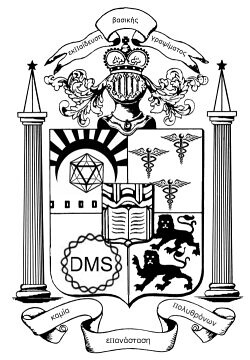Primary care doctors - internists, pediatricians, and family practice docs - are patients' first point of contact. There are two ways to think about primary care. I would argue that because primary care doctors need to be able to distinguish between tension headaches and brain cancer (for instance) that primary care physicians should be The Best doctors, while people working in a specialty need less diagnostic expertise due to the smaller disease spectrum they see. Curmudgeons, like V, would argue that because you have virtually no way to distinguish between tension headaches and brain cancer without an MRI (or similar) that primary care should be done by flowchart wielding nurse practitioners.*
Verghese wants more primary care physicians because:
Real patients want someone whose examining skills, when combined with common sense and sound judgment, can spare us the costly, blind, shotgun, ‘tick-all-the-boxes” kind of testing and imaging that has come to be the American brand of medicine. We want a doctor who orders tests judiciously, who calls in specialists sparingly, and who rides herd on them and weighs and translates what they say. What we want, in other words, is a primary-care physician.
Now, I agree with this entirely.** However, if V were to read this, he would point out patients, with the exception of Abraham Verghese (note the they -> we switch mid-paragraph), do not know and are not particularly interested in the formal status of the person caring for them. An M.D. does not increase, and likely decreases compassion. Becoming a primary care physician does not make one conscientious, similarly specialization does not remove that characteristic.
Since I agree with Verghese entirely, though, let's look at why there aren't enough primary care physicians. Verghese lists several reasons, summarized as: Primary care doesn't pay enough relative to the degree of training and the debt level most M.D.s graduate with.*** That's it. Secondarily to this, because primary care physicians are paid on a per-patient basis, they have to work long hours and don't get to spend much time with patients, so the work-style isn't much fun.
The above paragraph carries three completely plausible suggestions in it. Verghese clips one of them and misses the others completely. Instead he suggests an Peace Corps style program in which recent med school grads would be forced**** to work for a year doing primary care in an underserved area, in exchange for lowered student debt. Students exposed to the joys of primary care would abandon their future plans and switch to primary care in droves.
Students are already exposed to the joys of primary care, in the form of (at Dupont) 12 weeks of medicine (1/3 outpatient), 6 weeks of pediatrics (1/2 outpatient), and 4 weeks of family practice (all outpatient). One might argue for adding more to the curriculum, but if a student is offered primary care in at least 3 different flavors and likes none of them, what are the chances that a fourth will change their mind? Treating the students like grunts to be worn down in the toughest areas is also likely to leave a sour taste in the mouth.
Verghese does hit one nail on the head - debt forgiveness. Unfortunately, his program is begging to be ripped off. What's that you say, it will help me get a dermatology residency, and it will decrease my debt? A more straightforward plan would be to pay off the debt of students that go into primary care and practice in it for at least 5 years after their residency is over.
Consider the two other problems Verghese identifies - excessive training times, and reimbursement. Adding a year to training will only exacerbate the problem. Conversely, switching to a more nurse practitioner-based system (i.e. fewer years of training) could increase the number of primary care providers without provoking bitterness. Finally, why not suggest a tweak in the reimbursement system?
Funny conclusion goes here.
*:
Is the headache new or old?
New -> Consider headache characteristics
Thunderclap headache -> Head CT / LP
Signs of infection -> Consider meningitis
Headache with neurologic signs -> Neuroimaging
Morning headache -> Consider broad differential (including brain cancer)
Else -> New onset primary headache (give up)
Stern SDC, Cifu AS, Altkorn D.
**: See answer #9 here, except replace "NBME" with "Abraham Verghese"
***: Note that the difficulty of acquiring a residency 'slot' in a given specialty directly proportional to the future compensation of that residency. Surprise, M.D.'s are human!
****: He says it is voluntary, but says that competitive specialties (particularly dermatology) would use it as a criterion for entering physicians. Let me translate that into med studentese: Unless you want to end up as a [least favorite specialty] practicing in [a state you hate], you WILL do this program.
